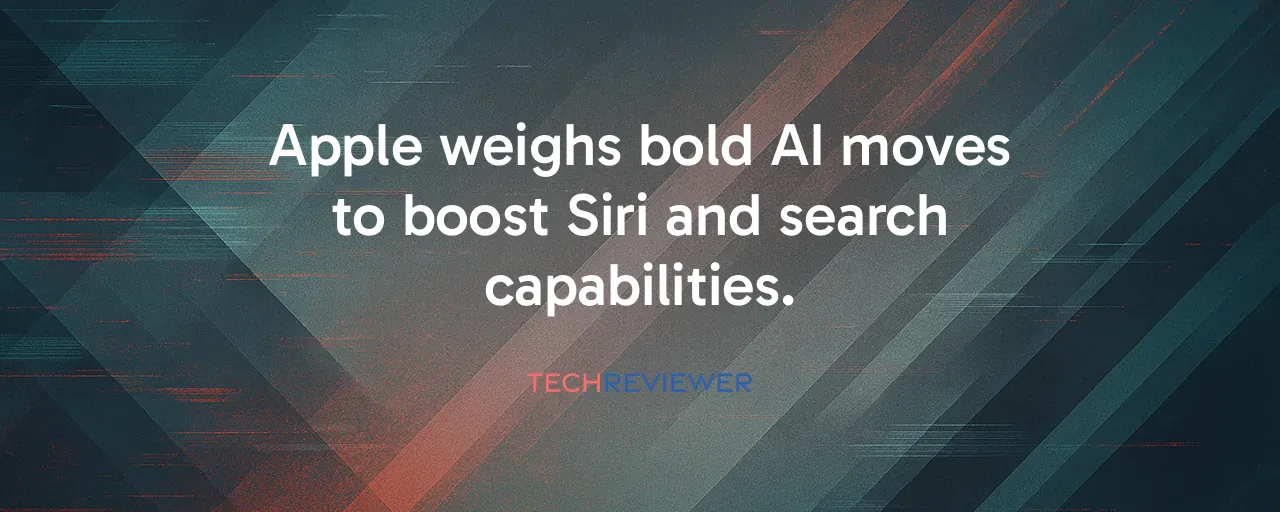Apple's AI Ambitions Take Center Stage
Apple has long prided itself on building its own tech, from silicon chips to software ecosystems. But whispers from Cupertino suggest a shift. Executives are debating whether to snap up AI startups Mistral AI and Perplexity, a move that could reshape how Siri and search work across iPhones, iPads, and Macs. The stakes are high. With Google, Microsoft, and Samsung racing to embed generative AI into their devices, Apple faces pressure to keep pace. A looming antitrust ruling that could end its $20 billion Google search deal adds urgency to the conversation.
The idea came out of nowhere for a company known for small, strategic buys. Apple's largest acquisition, the $3 billion Beats deal in 2014, was an outlier. Now, with AI startups commanding multi-billion-dollar valuations, the company is at a crossroads. Will it stick to its in-house ethos or make a bold play to leapfrog competitors?
Why Mistral and Perplexity Matter
Mistral AI, a French startup backed by Nvidia, has caught Apple's eye with its compact, high-performance language models. Its Mixtral 8x7B model, for instance, rivals GPT-3.5 in quality but runs efficiently on a single Apple M-series chip. That's a big deal for on-device AI, where speed and privacy are paramount. Integrating Mistral's tech could make Siri faster, smarter, and less reliant on cloud servers, keeping user data locked down.
Perplexity, a U.S.-based startup with Jeff Bezos among its investors, offers something else: a conversational search engine that cites sources in real time. If Apple loses its Google search deal, Perplexity's tech could power Spotlight or Safari, delivering answers with transparency Google's ad-driven model often lacks. Together, these startups could help Apple close the gap with rivals while staying true to its privacy-first mantra.
The Roadblocks to a Big AI Deal
But here's the catch. Apple's executives aren't all on board. Eddy Cue, the services chief, pushes for acquisitions to fast-track AI development, while software lead Craig Federighi argues Apple can build comparable tech in-house. The high price tags for Mistral, valued over $6 billion, and Perplexity, exceeding $3 billion, give pause to a company that rarely spends big. Cultural clashes also loom. Apple's tightly controlled ecosystem doesn't always play nice with fast-moving startups, and integrating external codebases with its security sandbox is no small feat.
Privacy adds another layer of complexity. Apple's commitment to on-device processing means any acquired tech must meet strict data protections. Perplexity's web crawler, for example, would need to navigate publisher paywalls without sparking legal battles. Then there's the regulatory hurdle. The U.S. Department of Justice and EU antitrust bodies are watching Apple closely, especially after concerns over its Google deal. A massive acquisition could invite scrutiny, forcing Apple to tread carefully.
Lessons From Google and Microsoft
Other tech giants offer a glimpse of what's at stake. Google's Gemini, integrated across its Pixel phones and search, prioritizes speed but has faced criticism for inconsistent answers. Still, its seamless rollout shows the power of aligning AI with hardware. Microsoft's Copilot, built into Windows and Office, leans on Perplexity-like source attribution to build user trust. Both companies have doubled down on AI to stay relevant, but their cloud-heavy approaches clash with Apple's privacy focus.
The bigger lesson? Integration matters as much as innovation. Google's unified AI strategy drives adoption, while Microsoft's acquisitions, like GitHub, smoothed cultural tensions by preserving startup autonomy. Apple could learn from both, ensuring Mistral or Perplexity's tech enhances its ecosystem without diluting its core values. Failing to balance this could leave Siri stuck in the slow lane.
What's Next for Apple and Its Users
If Apple pulls the trigger on these deals, users could see a Siri that writes code, summarizes texts, or generates images, all on-device, with no data leaks. A Perplexity-powered search could make Spotlight a go-to for quick, reliable answers, shifting web traffic away from ad-heavy engines. But the risks are real. AI hallucinations in sensitive areas like health or finance could erode trust, and Apple's walled-garden approach might limit the open-source benefits Mistral brings.
The broader impact goes beyond devices. A successful acquisition could set a new standard for privacy-preserving AI, forcing competitors to rethink their data-hungry models. Yet it might also concentrate more power in Apple's hands, raising questions about competition in a field already dominated by a few players. For now, Apple seems content with smaller deals, but the pressure to act is mounting. By WWDC 2026, expect to see a bolder, AI-driven Apple, whether built from within or bought at a premium.
